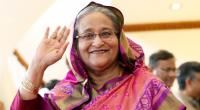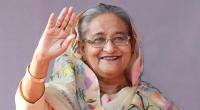 At least 13 deaths have been reported from dengue from across the country in the first four days of the month. Of them, eight were from outside epicentre Dhaka.
At least 13 deaths have been reported from dengue from across the country in the first four days of the month. Of them, eight were from outside epicentre Dhaka.
Against 15,614 patients in July, the number of people infected with dengue virus jumped to 24,805 in between Aug 1 and Aug 4, according to the Directorate General of Health Services (DGHS).
The figure shows that on average around 1,730 new cases were reported over the period. In the 24 hours until 8am on Sunday (Aug 4), as many 1,870 more patients were infected with the disease.
Although Dhaka city is affected most, the scenario in the rest of the country is becoming worse as the days go by.
On Saturday (Aug 3), 817 new patients were hospitalized outside Dhaka, while the figure on the previous three days stood at 680, 691, 562 respectively, clearly depicting that the dengue outbreak is gradually intensifying further.
At least five more deaths were recorded on Saturday, pushing the death toll up to over 60 so far this year, according to an unofficial count.
The latest DGHS estimate shows only 18 deaths since Jan 1.
The deceased include the wife of Additional Inspector General of Police (Finance) Shahabuddin Qureshi.
In Dhaka, Shahabuddin’s wife Syeeda Akhter, 54, died while undergoing treatment at Square Hospital. Lovely Begum, 40, who was infected with the virus in Chandpur, died of dengue in the early hours of Sunday in the capital.
At DMCH, a woman named Dipali Akter, 23 passed away from the virus at 3:18pm on Sunday.
Another female patient Shima, who was a second year honours student at Eden Mohila College, died in the city while she was receiving treatment at the Japan-Bangaldesh Friendship Hospital.
In Khulna, two people, including a schoolgoer, died. The deceased are Morjina Begum, wife of Ismail Sardar; and Monjur Sheikh, 15, son of Babul Sheikh of Khaja Danga village of Rupsha.
Health experts expressed their fear that the virus may spread, and intensify with people travelling from cities to hometowns for the Eid holidays.
Meerjady Sabrina Flora, director of the Institute of Epidemiology Disease Control and Research (IEDCR), advised extreme caution when travelling to home districts if diagnosed with dengue fever.
Terming urbanisation and dengue are interlinked, entomologist Kabirul Bashar said: “We call Aedes as an urban or domestic mosquito. Urbanisation has taken part in almost all the 64 districts in our country, contributing to the mosquito menace.”
“In the last 7-8 years I have conducted research in 22 districts of the country, finding ‘Aedes Aegypti’ and ‘Aedes Albopictusthe two mosquito species responsible for dengue transmission,” said Bashar, who teaches at the Jahangirnagar University.
“Aedes Aegypti is responsible for 95 percent of dengue fever in our country,” he said, adding, flood-affected areas are not at the risk of bearing the brunt of dengue outbreak.
HEALTH MINISTER’S CLAIM PROVED WRONG
The situation is dragging on in a sharp contrast to the claim of Health Minister Zahid Maleque that the overall dengue situation in the country is somewhat under control now.
"There will not be any shortage of medicine as insecticides are being brought from abroad to control the dengue menace," he told the media on Saturday (Aug 3).
The Local Government Division (LGD) yesterday formed a seven-member committee to mitigate the dengue outbreak by making sure there is effective insecticide, the proper utilization of it and to make sure there is quality control of the insecticides through scientific tests.
They will also make sure that the insecticides do not harm humans, the environment, other insects and aquatic life.
A viral infection, dengue causes flu-like symptoms, including piercing headaches, muscle and joint pains, fever and full body rashes.
Of the millions of people infected with dengue every year worldwide, an estimated 500,000 develop severe symptoms requiring hospitalization, and of those some 12,500 people die, according to the World Health Organization (WHO).
Searching for and destroying mosquito breeding places, use of mosquito net as well as repellents, and seeking early consultation when the first signs and symptoms of the disease strike are the most effective ways to prevent and cure dengue.
Doctors suggest taking rest and plenty of fluids such as oral saline, coconut water, juices in fever. Medicines other than paracetamol are restricted without the doctor's advice.
 National
National
39524 hour(s) 11 minute(s) ago ;
Afternoon 03:06 ; Sunday ; Apr 20, 2025
Dengue claims at least 13 lives in four days
Send
Bangla Tribune Desk
Published : 23:26, Aug 04, 2019 | Updated : 23:33, Aug 04, 2019
Published : 23:26, Aug 04, 2019 | Updated : 23:33, Aug 04, 2019
0 ...0 ...
/zmi/
Topics: Top Stories
- KOICA donates medical supplies to BSMMU
- 5 more flights to take back British nationals to London
- Covid19: Rajarbagh, Mohammadpur worst affected
- Momen joins UN solidarity song over COVID-19 combat
- Covid-19: OIC to hold special meeting
- WFP begins food distribution in Cox’s Bazar
- WFP begins food distribution in Cox’s Bazar
- 290 return home to Australia
- Third charter flight for US citizens to return home
- Dhaka proposes to postpone D8 Summit
Unauthorized use of news, image, information, etc published by Bangla Tribune is punishable by copyright law. Appropriate legal steps will be taken by the management against any person or body that infringes those laws.
Bangla Tribune is one of the most revered online newspapers in Bangladesh, due to its reputation of neutral coverage and incisive analysis.
F R Tower, 8/C Panthapath, Shukrabad, Dhaka-1207 | Phone: 58151324; 58151326, Fax: 58151329 | Mob: 01730794527, 01730794528


